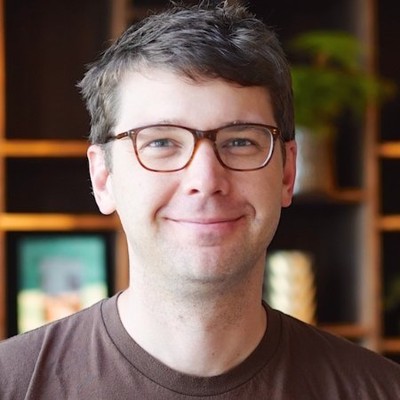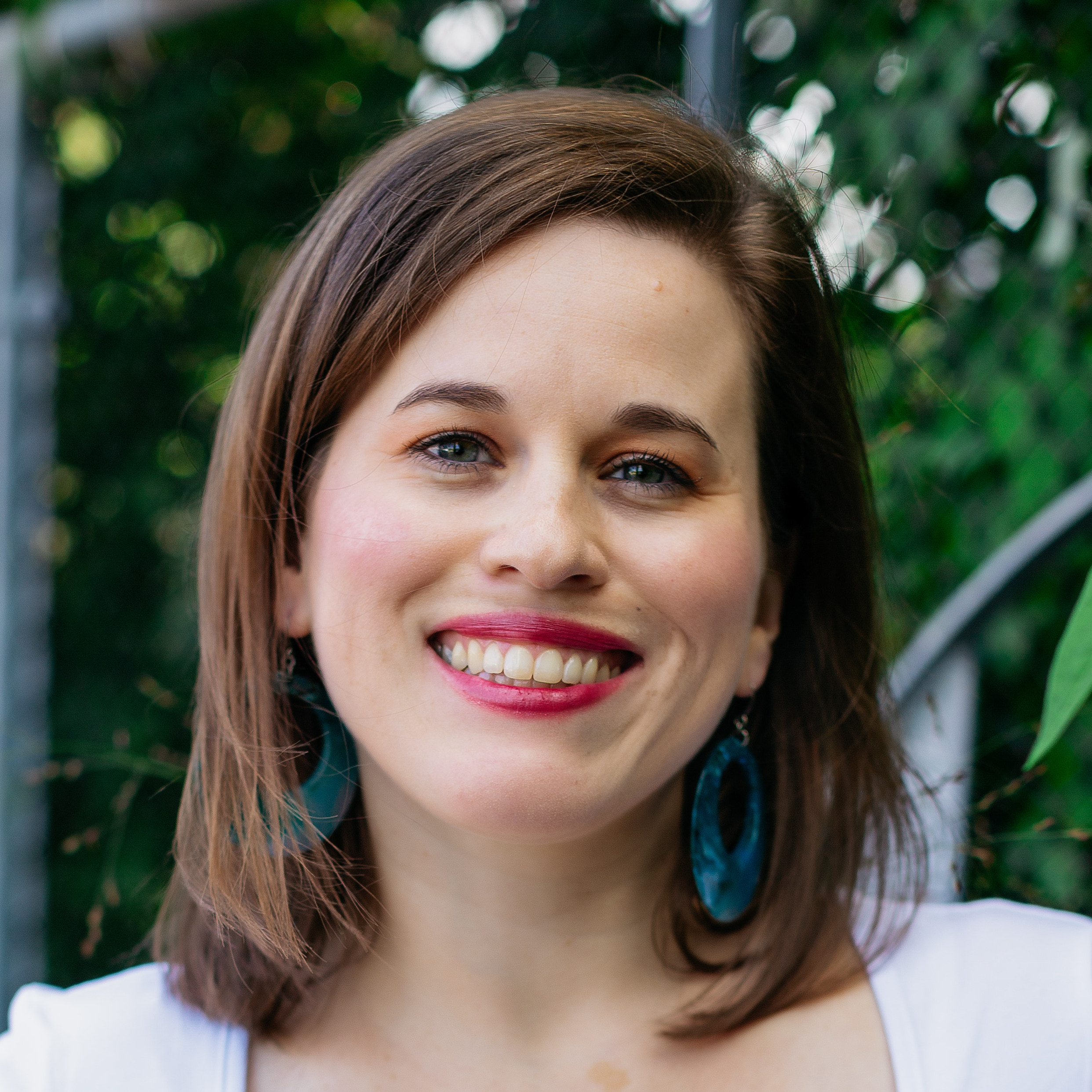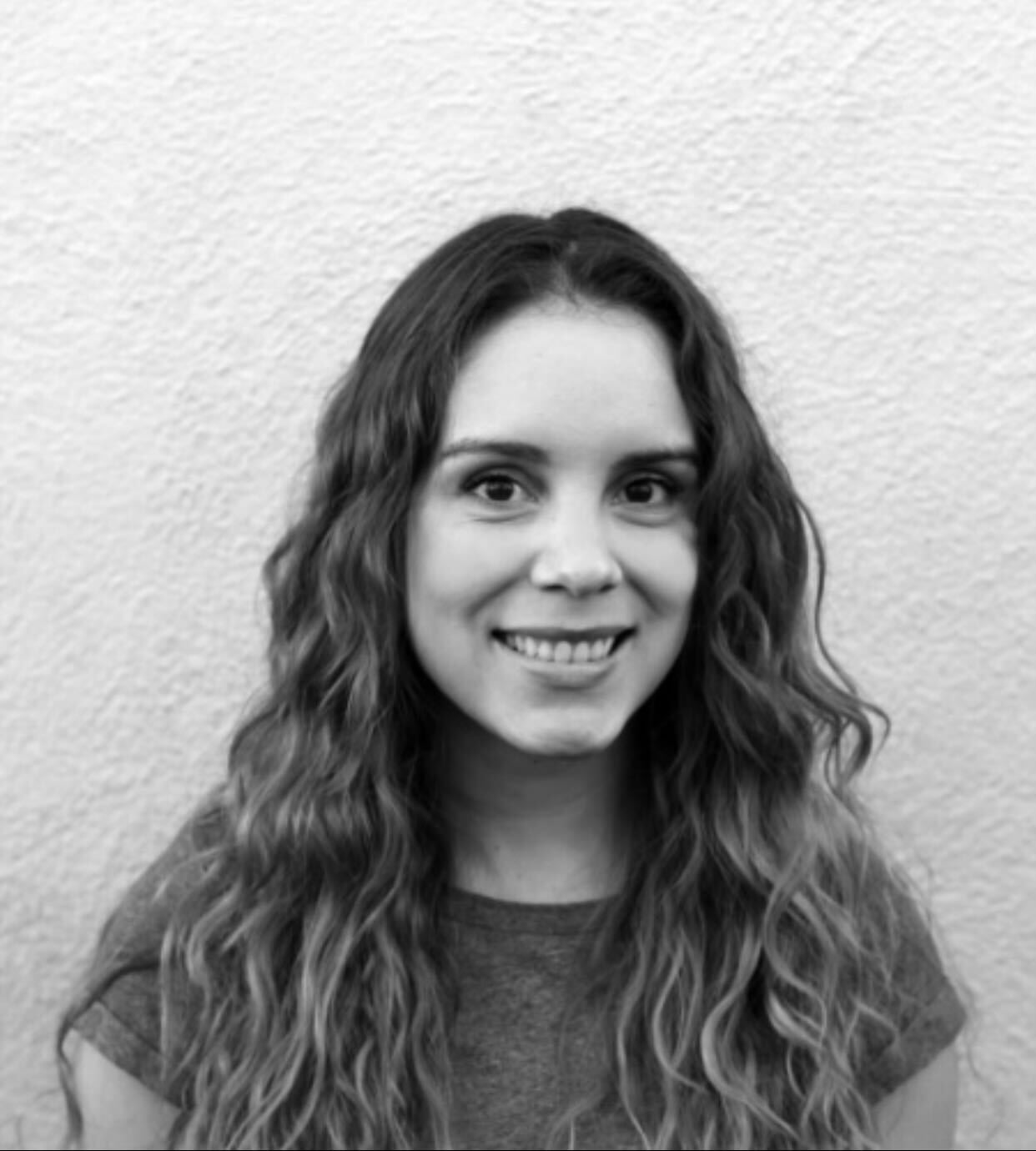Ronald Young Jr.—or “Big Ron,” as he’s often known—has always been a go-getter. His first job in audio was at the DC-area radio station Hot 99.5. There, he learned how to cut tape using Adobe Audition. But he wanted to be good at every part of the business, so after he cut together the ads he’d been assigned, he would practice reading those same ads himself. He would hit record and then cut that tape to teach himself how to host, as well as how to edit.
Ronald brings that same spirit to his work as an audio producer and the creator of his own independent podcasts, including Time Well Spent, Leaving the Theater, and Weight For It. He was named one of Vulture’s podcasters to watch in 2023. So we talked to Ronald about making your own opportunities, grassroots audience building, and, well, how much he loves Descript. This conversation has been edited and condensed for length and clarity.

How did you learn how to interview people?
I didn't start doing interviews until I started my own podcast, Time Well Spent, in 2017. I'm a naturally curious person, so that came pretty easily to me.
I did an interview show called Solvable, and I remember my producer would get upset with me cause she was like, “You got to just jump in there!” I'm like, “No, you have to let them talk.” That’s my practice.
There’s a difference between interviewing the president of the United States and trying to get an answer, and me doing an hour-long interview with someone that's going to be cut down to 35 or 45 minutes. I want everything they're going to say. You really want that full answer so that when your producer, your editor gets into that tape, they could cut it down.
So I don't interrupt people. I let them finish talking. I use silence. I ask open ended questions. And prep—make sure you prep beforehand. Say, what story am I trying to tell? What information do I need from this person in order to tell that story? And then that's how you know, at the end, whether you've had a successful interview or not.
What was it like to transition from the radio station to buying your own gear?
I had a full-time job, so I funneled all that money into making the best fledgling, ragtag podcast I could. I think I bought my mic for $79.99. It was both XLR and USB. I think I bought two of those, and I was using a Zoom H6 field recorder. I pulled the audio from that and put it onto my laptop.
In a lot of ways, when I started podcasting, I felt like I had a leg up on a lot of my competition. The compliment I got the most often was, “This sounds like something that could be on NPR.” To the naked ear, that is true, but to anyone that’s trained, that is a blatant lie. Other people would be like, “Ronald, these breath cuts are out of control.”
But every episode I just kept iterating. I'm like, how am I going to make this better? I didn't even know about volume and levels of music until someone pointed out “Hey, the music's too loud.” So it was me Googling a lot of things, going to YouTube university.
And I hear you use Descript these days. How does it fit into your process?
I used to dread doing a part of the work that is a lot easier for me now, which is, play the interview, transcribe the interview, and then highlight the good parts of it. I was like, I don’t know! Because I couldn't see it. I couldn't see it in front of me, and I didn't know what to highlight.
But now that I'm listening along with the script that's already created, it's easier for me to pull those selects, and then immediately start writing into those selects. So even if it’s Saturday and all I have is tape, by Sunday, when I get everything listened through and highlighted, I feel confident about writing on a Monday. Which is exactly what happened in the last three days.
How did you balance having that day job with making the podcast?
The way it started was I was like, I'm going to treat this like a part time job. At the time, I was also working at this part-time job on Tuesdays and Wednesdays after work. So I thought, if I have the energy to do that, then I have the energy on Mondays, Thursdays, and Fridays to be working on my podcast.
It got to the point where I'm like, my part time job is taking up valuable time that I could be working on this. And then eventually it became, my full time job is no longer my passion. And I'm going to steal every moment I can to work on my actual passion.
The truth is, the amount of energy you put into doing your side project directly correlates to the level you believe in yourself. The more you believe in yourself, the more likely you're going to put time into your side hustles.
I knew that the morning was my most creative time, and I realized that I was working on a spreadsheet for work during those hours. I'm like, why am I giving them my best time? I should be giving them my worst time. I don't care about this job. I care about my podcast. So I'd wake up early in the morning, working on my podcast at work until my boss got there, and then I'd switch to actual work.
I believe that time theft is the only tool of equality that we actually have, because all of us are underpaid. The only way that you get your time back is by stealing time. As long as the work's getting done, I don't want you asking me no questions.
I think I can admit at this point that I wrote a bunch of my second novel in Gmail drafts at my job, back in 2015.
When people ask for tips on [how to find time] I always just want to say, it depends on how much you love doing it. Because if you don't love doing it, then why put any time into it at all?
To be honest with you, I got to a place with my podcast where I'm like, I don't think I have enough time to put into this. I'm putting in every waking second and I need more time. So if you're asking me, how can I gain more time to put it into this project? Now you're cooking.
Are you wasting time doing unproductive things that are not actually fulfilling you? If you're spending three hours on Twitter, could you spend two, and spend a third hour doing your podcast?
So once you started making Time Well Spent, how did you find an audience for it?
For me, podcasting has been an iterative process. Each show makes me better at whatever the next thing is that I'm doing. I should be learning something from every episode, every ad read. Which means that every time I make an episode of something, I should be getting faster at it. There should be things that are repeatable, things that are copy and paste. It should be easier every single time.
The reason why all of that is important is because with Time Well Spent, I was never worried about finding an audience. I built that audience person by person. It was very grassroots. I was at work being like, “Hey guys. I have a podcast. You should listen to it.” I always have business cards in my pocket, handing them out to people. “You should check out my podcast. It's good. It's not like other podcasts. I promise you it's good. It sounds like NPR. You should check it out.”
With Leaving the Theater, I’m reviewing movies as I leave the theater. For that one, I started showing up on other shows, and hopefully bringing some of that audience back to mine. By the time you get to Weight For It, I'm with Radiotopia, which gives us a little bit of a boost.
But I'm still doing the same thing. I'm still telling people that Weight For It is a good show. Like, I'm still walking up to people and saying, “You should listen to this.”
With Leaving the Theater I've realized we’re up to like 600 or 700 downloads an episode. Which is relatively small, but I think what people don't understand is, that number used to be 100. That number used to be 70, you know what I mean? That's like a 600 percent increase.
You can’t measure everything as, is this the number one podcast? People who get too sucked into the numbers—that will make you quit. You really have to say, I just need one subscriber. I can't be discouraged if it goes from three to four. That's a celebration. Four to five. That's a celebration. Little by little is how you take over the world.
I’d love to hear more about Leaving the Theater and how it came to be, because it’s a very different kind of show than anything you’d done before.
So the reason why Leaving the Theater exists is because one time I was on local public radio talking about a movie, and they credited me as “film and cultural critic, Ronald Young Jr.” I was like, that's true to all of my friends. I am a film critic because I'm always talking about movies. However, I have nothing in my resume that has me talking about movies.
I was like, what is a way that I could talk about movies and do it relatively quickly? And then it was like, what if I just went to the movies, and as I walked out of the theater, I reviewed the movie, and then I just put it up raw. That was how the show was born.
My whole goal with this show is to be able to go to the movies for free, and last year I started being able to attend press screenings, because I’m now a member of the press. I review stuff with Pop Culture Happy Hour as an additional fourth chair. And I finally got my own show! It's called Pop Culture Debate Club. I'm taking over for the host that's there.
All of this came from building my own portfolio. And it took time! Leaving the Theater launched in 2019. It is 2024. So it took five years before I got my own bona fide chance at my own pop culture project.
I feel like that’s an underrated skill, being able to see what future opportunities you want and building yourself a path to get there.
Well, see, that's the thing. I had a friend who worked at the station who was like, “Ronald, can you talk about Get Out?” And I was like, “I love Get Out. I'll come talk about it.” I knew I could talk. But I feel like the credentials are really what gets you the official offers. Like when people ask you, “Hey, I need a reel,” or “Where else can I find you?” You have to have something that they could come back to, you know?
Or for instance, I started going to press screenings because of Pop Culture Happy Hour. When I was at a screening, one of the other critics from Pop Culture Happy Hour introduced me to the people who run the press screenings. They're like, “Can you get Ronald on this list?” I was like, “Yeah, can you get Ronald on this list?” And now I'm on the list. If you give me an inch, I will take that inch. And then I will also build my own mile.
So you’ve talked about your iterative process. How did your first two shows kind of teach you how to make Weight For It?
By the time I got to Weight For It I had a lot of production experience under my belt—just random shows that I had been able to produce. There were some people I pitched it to that said, “Hey, we want to do it,” but then pulled back or whatever. I think I started pitching that show in early 2022, and by the end of the year, I was like, whatever, I have enough experience to make this myself. I know I can make at least three episodes by myself. So I'm going to make three episodes by myself.
And then in the process of making those three episodes, the Tribeca submissions opened up. I was like, Hey, let's submit this to Tribeca and see what happens. In 2023 Tribeca picked us as an official selection, which was the momentum we needed to get to the next level. For me, it was having the confidence from doing those first two shows to basically buck the system and say Forget it. I’m just going to make it myself.
I would not have the confidence to make it myself if I had not worked on other projects. And I knew where my gaps were. I knew exactly what I was going to need to get over the finish line. So I'm working with my editor, Sarah Dealey, and my sound designer, John DeLore.
So how have you monetized your shows? What has worked out well, and what hasn’t?
I have a Patreon for Leaving the Theater. Radiotopia, they're supposed to sell ads for us, but for Weight For It season two, we actually went out and got our own ad partner. For season two we'll be working with Big Fig Mattress Company exclusively. We're excited about that.
Monetization is one of those things that's very tough right now. The way the ad market has developed hasn't been exactly fair to the independent creator. So I think what is good is Patreon—places where you can get direct support from your listeners. People who love the thing that you're making. That's the strategy that I stick to now, because I want to remain independent.
The thing about me is because I do this full time, the other way that I think about money is, what do I need to do to pay my rent? I produce for other people, so I don't think of monetization as saying, like, this podcast needs to make money so that I could pay rent. But I do want to be in a place in the future where I’m making enough money that I no longer have to worry about projects that don't matter as much to me.
Speaking of which—you now work full-time in audio, and then you also make your own shows on the side. How do you make sure that you don’t burn out?
I have a direction. I don't know what the actual destination is, but I have a direction that I want to go. I want to be creative and make things that are vulnerable, that are emotional, that make people think, that make people feel.
So then it’s about pushing further into that direction. It's about, how far can I go down there? Is it television? Is it movies? Where do I go beyond podcasting? The creative spark comes from knowing that I have a limited time left in podcasting, in audio production—I mean, in this form. I think I'll always be doing audio production in some form. But I don't know if I'll be producing forever. Maybe I'll be executive producing. Maybe I'll be helping other people with stuff.
The push now is, think about television—what can I be doing? How could Weight for It be something visual? And then what comes next after that?
But now I'm in a place where there's only so many things I can make independently. So now it's to the point where I'm just like, all right, well, if I'm going to make this, somebody's going to pay me some money. That's the direction that I'm going in now.
Do you have any advice for beginning podcasters?
Make sure you have a clear idea of what your show is. Actually, I'm going to go even more simple than that. Do you have a good name for whatever it is? Because for me, I found that the strongest ideas I've had, the names came naturally.
So my thing is, if you have a concept and you don't have a name, go back and keep thinking about that concept until a name comes naturally, and it fits the concept perfectly. And when that happens, start thinking about what your first episode is going to sound like. And then when you think about what it sounds like, write that down as an outline, and then go make that outline into an episode.
There'll be people that are like, “Get out there! Start recording!” You can do that. But if I had it to do all over again, I would do a little bit more planning. I would do more outlining. Because a lot of times I had tape, but I had nothing else but tape.






%20(1).JPG)




















